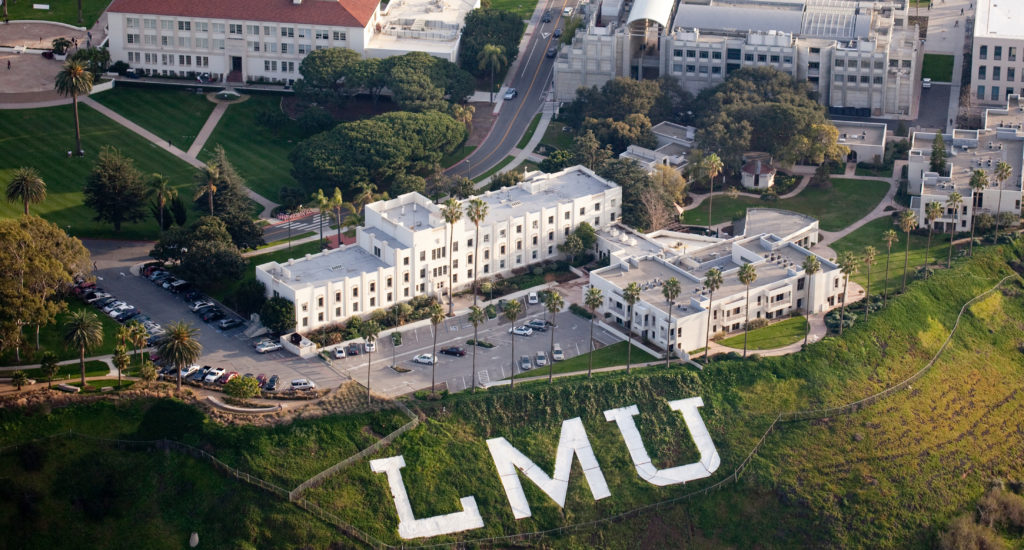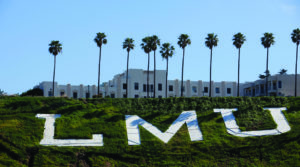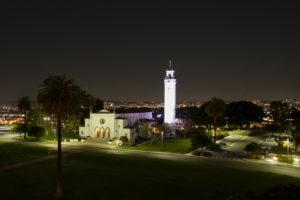MISSION AND MINISTRY | This week, the LMU community celebrates its past, present, and future during Ignatian Heritage Week, reflecting together on our Ignatian identity: the values and ways of proceeding drawn from the life of St. Ignatius of Loyola, the Society of Jesus he founded, and the principles and values of Ignatian spirituality and pedagogy that give shape and meaning to our mission. In response to this week’s theme, Monique Mansour, instructor in rhetorical arts, reflects on what Ignatian heritage means to her.
Having been born into an immigrant family, my parents taught me the obligations that I have to my faith, my relatives, my neighbors, my friends, my country, and to my global community from an early age. After all, how could they have not? They were keenly aware of the interconnectedness of our society, having witnessed firsthand what happens when words and promises are not used for good, and instead are falsely given in the name of peace. When ill words and broken promises are turned into actions, families are uprooted. Entire nations are brought to their knees. Cultural markers and senses of identity are destroyed. Divisions between groups become deeper. St. Teresa of Calcutta once famously said: “If we have no peace, it is because we have forgotten that we belong to each other.” Perhaps it is with our faith-driven thoughts and words then, where peace begins. And there is no peace without justice.
This upbringing of mine is precisely why the following tenet of our LMU mission resonates with me so deeply: “The service of faith and the promotion of justice.” As a professor of rhetorical arts, the emphasis of my course is on speaking and writing for social justice, directly in line with this mission statement. The Jesuits have much to teach us about rhetoric, having coined the concept of Eloquentia Perfecta, or the idea of the “good person writing and speaking well for the common good.” As we learn, study, and grow, we must also be working on ourselves, and on our characters, if we are to be of lasting service to our communities and ourselves. This is all done in service to and in the spirit of ad majorem dei gloriam – “for the greater glory of God,” the motto of the Society of Jesus.
Eloquentia Perfecta demands us to think about the following: What are words, what is language, if not in service to others? What is an argument, or a stance, if not in service to others? What is a thought, or an idea, if not in service to others? It also reminds us that the skills we learn in rhetorical arts are applicable to anyone in any major, in all disciplines, and no matter what future career, aspiration, or profession a student aspires to, any single one will demand them to think, and to write and speak, and what better way to use their thinking, writing, and speaking than for the betterment of their communities? After all, it could save lives. It could very well save us all.
“The service of faith and the promotion of justice” reminds us to celebrate our interdependence and to celebrate it daily. To me, living out your faith means to commit to upholding justice and letting it prevail: in our neighborhoods, in our states, in our countries, in the communities we find ourselves to be a part of, in our shared world. And how do we start? With our words.
— Monique Mansour
Interested in learning more about Ignatian Heritage Week and what our Ignatian mission means for you? Click here to learn more, to view the calendar of events, and to register for programs, or contact the Office of Mission and Ministry at mission@lmu.edu.




